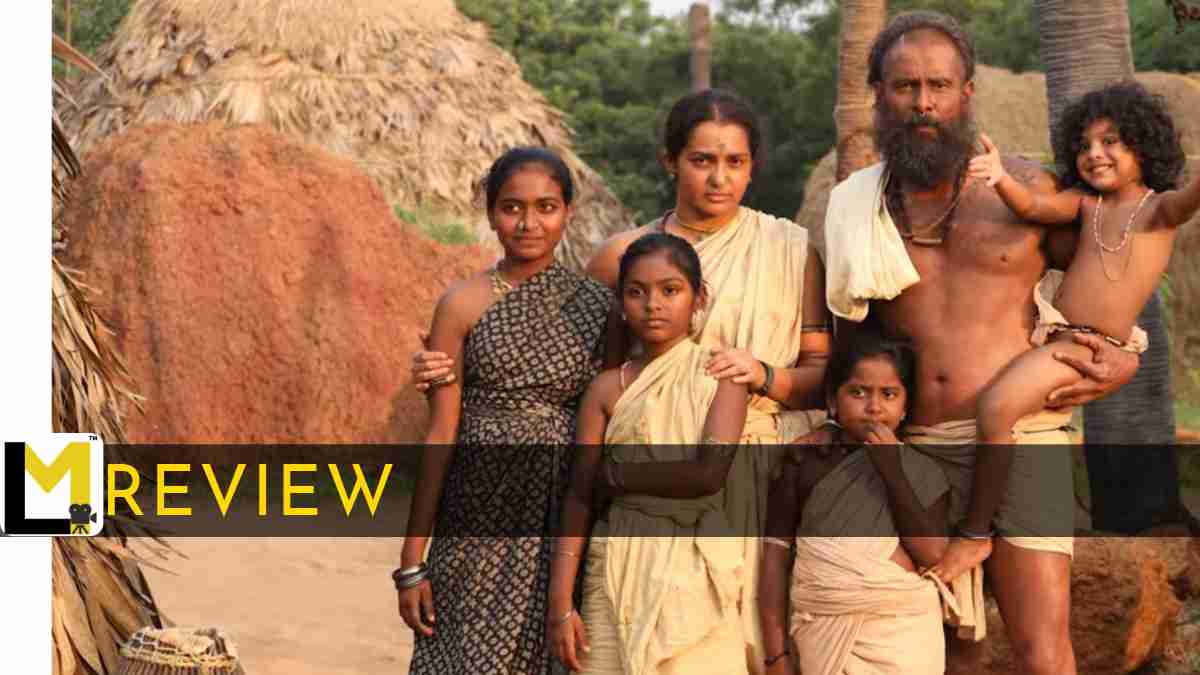Pa Ranjith’s movies have always been highly political, and with Thangalaan, he is trying to narrate a tale of land politics. Blended with some fantasy, which is used as a tool to connect history with the story, this well-visualized movie has the support of stellar performances. But despite having an authentic attire in depicting the struggles, there is something missing in the emotional layer of the story.
So the story is set in the British Raj era in the Veppur district, and Thangalaan, a tribal man, and his family had land of their own, which was something the Zamindars didn’t like. With some crooked planning happening against him, Thangalaan loses his land. During that period, Thangalaan gets to be a part of the expedition of a British officer to find gold in that area, and he sensed that this has the scope to change the life of his clan. Thangalaan’s decision to bring his people to that place to find gold and how it all culminates is what we see in this Pa Ranjith film.
At the end of the movie, Pa Ranjith shows us some of the available photos of the Pariah community, and it also features images of the machinery and working environment in Kolar gold fields during the initial mining days. So basically, Ranjith is trying to add layers of fantasy to an existing history to strengthen the impact of the theme he wants to convey. The real wrath of Aarathi, a mythical character who appears in Thangalaan’s dreams, that happens in the movie’s final moments has these intercutting happening between day and night, and it felt extremely impactful. But there is an important emotional arch in the story where Thangalaan is going through a self-discovery journey, and somewhere that track lacked depth or impact.
The world-building is a key element in this film as an authentic portrayal of the people who belonged to those places was essential for the story to inject empathy into the minds of the audience. The slang is pretty different, and the dialogue rendering has that rawness. Pa Ranjith has chosen the barren landscape to narrate the story, and since the story has a layer of fantasy, he and Tamil Prabha incorporated all the traditional elements of the culture into the script. The character of Aarathi is used more like a warning metaphor rather than a horrifying myth. The backstory that we get to hear at the very end of the movie is somewhat spoon-feeding the audience a little too much, and a lot of things happen quite abruptly in the final act of the film. He uses the contrast of black and gold in the frame to depict the resistance. GV Prakashkumar’s tracks are beautiful and fit into the texture of Thangalaan’s world. Visual effects weren’t that consistent as some of the creatures created in CGI looked very artificial on screen.
Performances are the highlight of this movie, and Vikram is simply brilliant in transforming into this character. More than the wild and rough side, it is a character who is going through multiple internal dilemmas, and he was able to pull off that dual personality brilliantly on screen. Parvathy was extraordinary in transforming into Gangamma. Be it the body language, the slang, and the uninhibited way of surrendering to that character, the portrayal looked very original. Malavika Mohanan, as Aarathi, doesn’t have a lot of screen time, and there are not many lines for her character. But the character’s anger demanded a ferocious energy, and that was definitely there in her performance. Pasupathy was memorable in his character. British actor Daniel Caltagirone played the part of the antagonist, Clement. Anbudan Arjun, who acted the part of Thangalaan’s elder son, deserves a special mention.
Thangalaan is a movie backed by terrific performances that cover up many of its emotional inconsistencies. But ultimately, when the film ends showing the rebellious energy of the tribal people, we should have found ourselves rooting and cheering for them, which unfortunately was not there. Because of a final act that feels somewhat underwritten, Thangalaan becomes that almost-good film with a lot of heart.
Because of a final act that feels somewhat underwritten, Thangalaan becomes that almost-good film with a lot of heart.
Green: Recommended Content
Orange: The In-Between Ones
Red: Not Recommended


